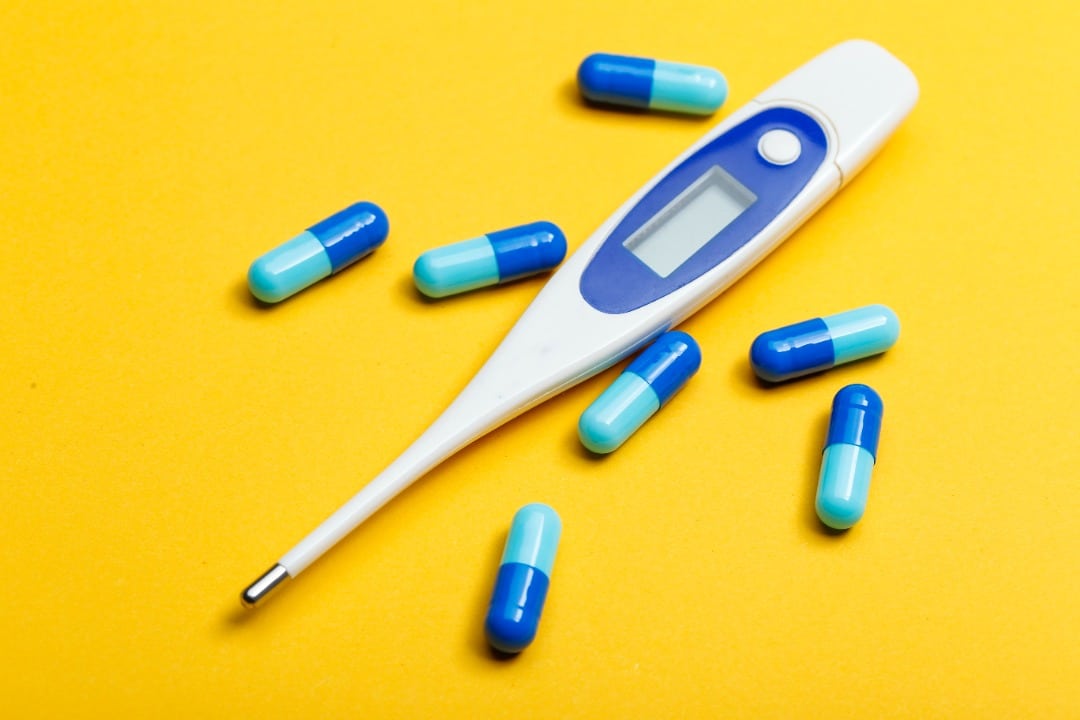
Drug use affects the body in many different ways. Substances alter cognitive, emotional, and physical functioning to varying degrees. Amphetamines, such as prescription amphetamines or methamphetamine, have serious effects on the body. One example is their impact on body temperature. Amphetamine abuse can lead to disastrous consequences in certain environments, particularly in warmer weather or while exercising. How do amphetamines affect body temperature, and what are the dangers of other amphetamine effects?
What are amphetamines?
Amphetamines are a class of drugs that stimulate the central nervous system. They include substances such as prescription amphetamines (Adderall, Ritalin, Concerta, etc.) and methamphetamine. These drugs rapidly increase the amount of dopamine in the brain and have euphoric effects. The sudden onset and quick decrease of amphetamines’ effects reinforce drug-taking behaviors and encourage repeated use in short periods, increasing the likelihood of addiction.1
Sometimes amphetamines are also mixed into other substances. Amphetamines are often cut with other illicitly manufactured drugs, such as counterfeit prescription pills or club drugs like molly. People may think they’re taking one drug when in reality, they’re taking amphetamines. This can cause harmful effects because they aren’t expecting amphetamine effects; they’re anticipating another response. They may also combine these drugs with other substances, further increasing their chance of experiencing negative effects.
Amphetamine effects
Some examples of amphetamine effects include:
- Increased energy
- Increased wakefulness
- Increased physical activity
- Decreased appetite
- Faster breathing
- Rapid or irregular heartbeat
- Increased blood pressure
- Increased body temperature
These effects can have harmful consequences when taking large amounts of the drug. Amphetamine abuse compounds the substance’s effects and may cause physical harm in some circumstances.
Amphetamine abuse and body temperature
Increased body temperature is one of the most common amphetamines effects. This may not matter much under certain conditions, such as indoors or on a cool day. But people often take amphetamines when partying at outdoor festivals or raves, often on warm or hot days. The combination of increased body temperature and high temperatures outside drastically heightens the risk of sudden cardiac death.2
Increased body temperature caused by amphetamines can be a serious concern. Amphetamine-induced body temperature increases are also dangerous among outdoor workers. One study from the Occupational Safety and Health Administration (OSHA) identified amphetamines as the cause of 26.5% of fatalities due to severe hyperthermia.3
Seeking help for amphetamine abuse
Amphetamine use disorder affects an estimated 3 million adults in the United States every year.4 Seeking help for amphetamine abuse is the first step to freedom from the grips of substance use disorder. Substance abuse treatment programs such as those at Steps to Recovery provide a path out of the darkness of addiction and into the light of recovery.
Quitting drugs or alcohol is not an easy feat, but it’s possible with the right support and environment. At Steps to Recovery, we’re dedicated to helping people find the relief they hope for. We offer a wide range of programs and services to meet the needs of anyone who wants to eliminate substances from their lives and experience all that life has to offer. Call us today at 866-488-8684 or submit an online contact form to speak with an admissions specialist and find the program that’s right for you!
References
- National Institute on Drug Abuse. (2019). Methamphetamine DrugFacts.
- British Journal of Pharmacology. (2021). Cardiovascular and temperature adverse actions of stimulants.
- Substance Abuse and Mental Health Services Administration. (2022). National Survey on Drug Use and Health 2021.
Explore this article:
Explore Our Facilities
Drug and alcohol detox and residential treatment for addiction and mental health disorders
Outpatient treatment center for substance use disorder and mental health disorders
Outpatient treatment center for substance use disorder and co-occurring mental health disorders







